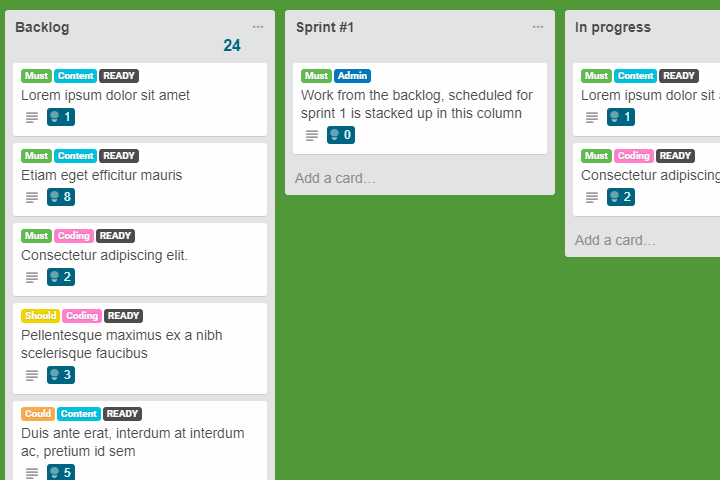
How and why we QA
At a conference recently one of our team was speaking about how we organise our work using Trello and the Kanban-style workflow we have settled on. A number of people told her afterwards that they were impressed with…

At a conference recently one of our team was speaking about how we organise our work using Trello and the Kanban-style workflow we have settled on. A number of people told her afterwards that they were impressed with…

Backlog refinement One agile practice that we’ve adopted from Scrum is that of product backlog refinement. In short, it involves representatives from both the project level team (project manager, business visionary,…

Back in August I wrote a post called “How do you know when you’re done?” in which I explored the agile concept of the “definition of done” or “done done”. However, in conversations with developers over the last few…
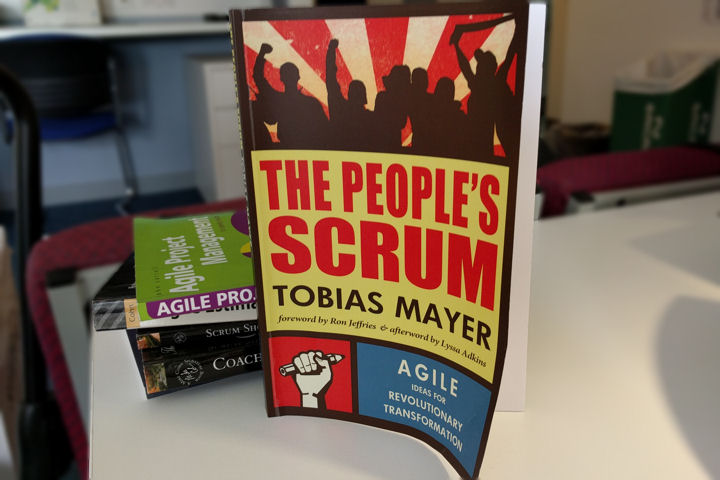
I first encountered Agile at the Scotland on Rails conference in Edinburgh in early 2008. While much of the conference (about Ruby on Rails, a server-side web application framework written in Ruby) went sailing over my…
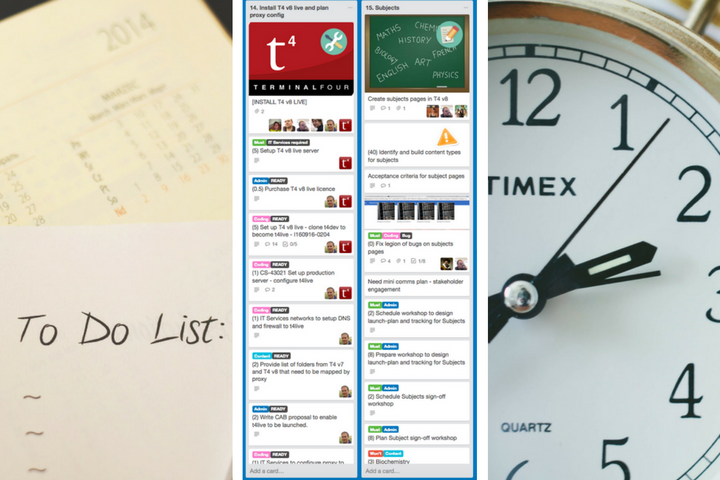
I recently attended a time management training course put on by CAPOD. The session was very insightful, providing useful and practical techniques to become more efficient at work. However, during the session I realised…

How do you know when you've completed something? Agile invites you to define "done done" so everyone on the team knows.

The world of social media moves at an incredibly fast pace, where often change is the only certainty. This can be challenging in terms of strategy because an element of reactivity is required to accommodate this rapid…
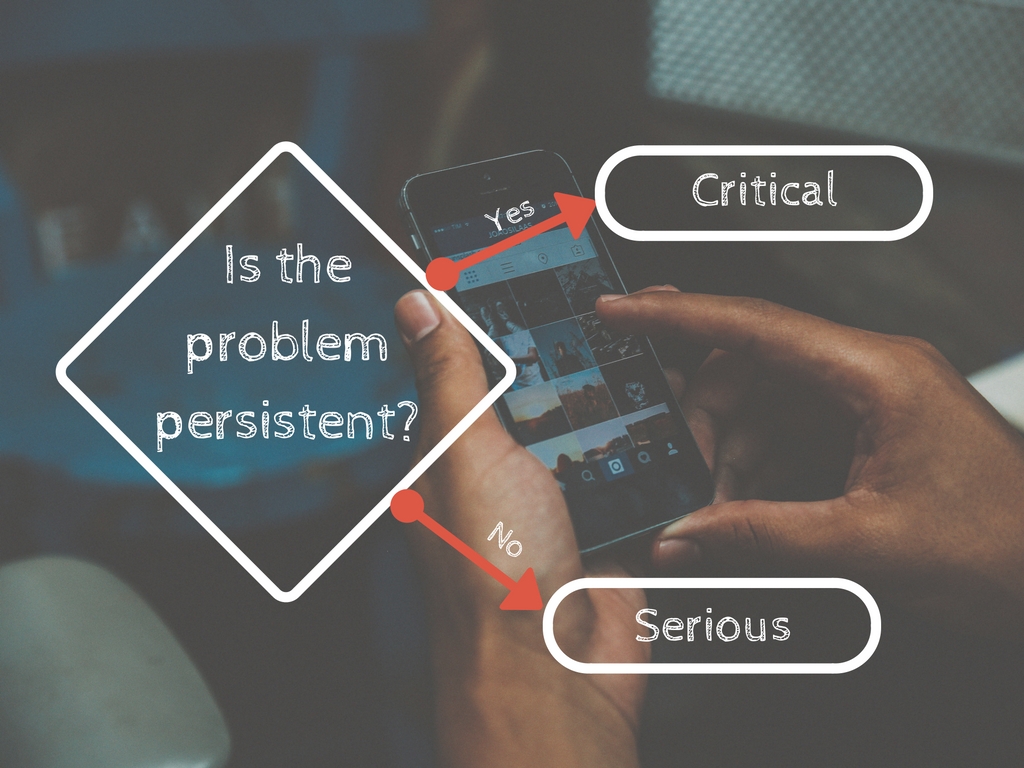
‘Understanding Users; Managing Change; Delivering Services’ was the theme of IWMW 2016 (the Institutional Web Management Workshop) – and agile usability testing seemed to convey this message perfectly.

This guide shows how the 60/20/20 proportion of must, should and could requirements in Agile MoSCoW prioritisation is against effort not number of requirements.
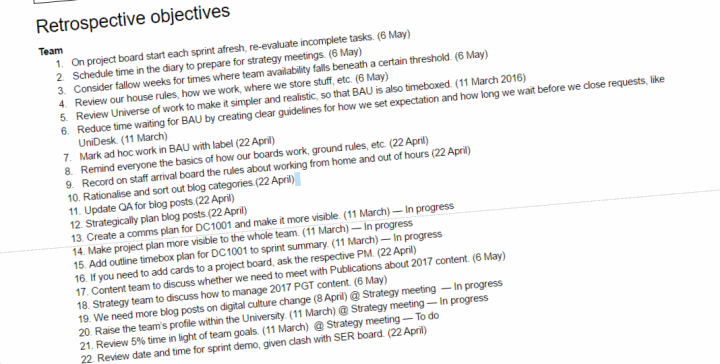
During team retrospectives, which we hold at the end of each sprint, we have been guilty of agreeing to too many actions to change our processes and working practices. Needless to say, most of these don't get completed…